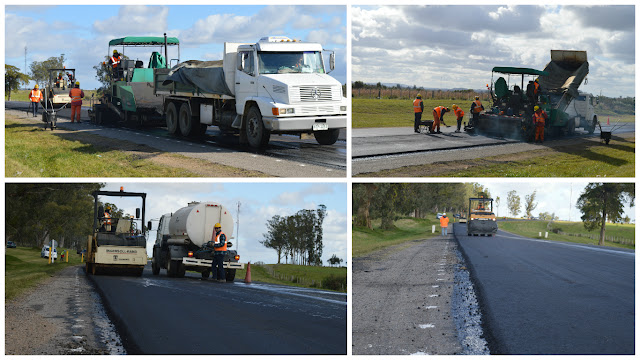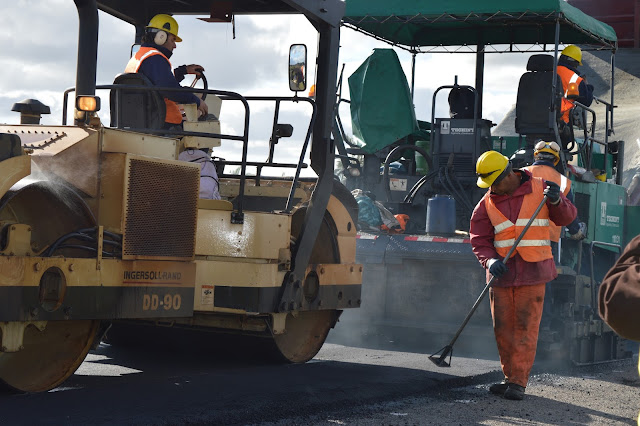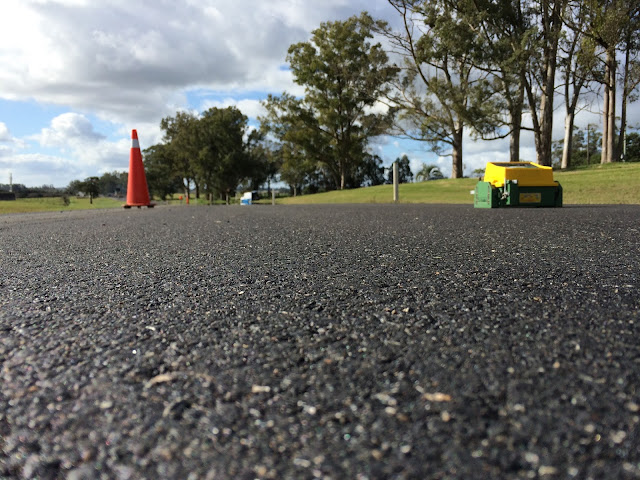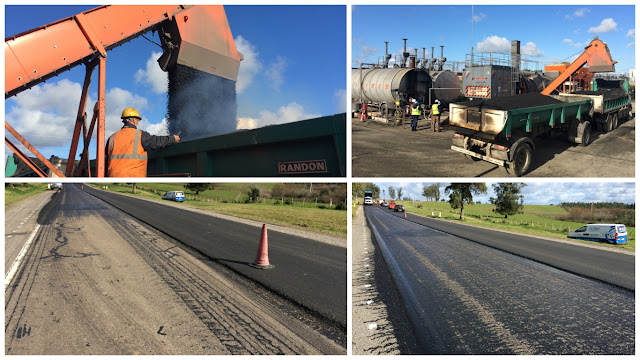Last Friday, June 3 the first flight of recoating was performed with BITAFLEX AMC 50, modified asphalt tire dust on Route 9 along with Techint SACI. A stretch of about 1300 m on the road more was performed, near km 202 at the entrance of the city of Rocha.
This is another milestone in the development of technology in Uruguay after the success of the first stage of testing performed in 2009 at the entrance to our industrial plant.
The BITAFAL GROUP always at the forefront of new technologies, has developed a modified crumb rubber asphalt having performance characteristics similar against permanent deformation to a AM3. To ensure the quality and homogeneity of the product, we have built a specific plant for manufacturing
BITAFLEX AMC 50 mixers with high power.
Since last December governing
Decree 358/2015issued by the National Directorate of Environment (MVOTMA) in which tire producers and importers must take over the management of tires once their useful life. One of the most sustainable alternatives to recycle them is the modification of asphalt.
Already there have been several advances in Uruguay, as the presentation of Management Plans (
El Pais, 06/13/2016), The opening of the first floor grinding used tires
This time a semi-dense mixture was made in a thin layer to surface layer (CAC S 12), the thickness of 40 mm provided. Stability values and design empty% were similar to those made with AM3.
In construction, fabrication, laying and compaction of the mixture was held at the same temperatures that were being made with AM3, with the advantage of better workability in work could be seen as technical.
We will report on the performance of this segment in future editions of the newsletter.





